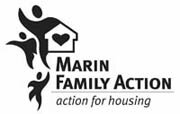Youth Financial Literacy
 Understand and stabilize your finances; learn how through adult and youth financial literacy workshops.
Understand and stabilize your finances; learn how through adult and youth financial literacy workshops.
Controlling your budget is the first step to fulfilling your dreams. Becoming aware of your expenditures is needed more than ever because of confusing information heard daily. Our workshops will prepare you to make solid financial decisions for you and your family with the goal of avoiding economic stress.
Youth Financial Literacy Jamboree 2014-2015 Schedule:
- Saturday, September 13, 2014: 10 a.m. - noon: Part 1
- Saturday, November 24, 2014 (or the week before Thanksgiving): Part 2
- Saturday, January 17, 2015: Part 3
- Saturday, April 18, 2015: Part 4
Background
The Youth Financial Literacy in Marin County High School/Novato High Pilot Program was initially conceptualized in March 2005 by Marin Family Action (MFA).
Five financial institutions, one high school, public service agency, community foundation, training and technical assistance organization, legal services group, and a consulting firm partnered with MFA to move the pilot concept from vision to reality.
Combined, those agencies represent the Coalition of Financial Institutions for Youth Financial Literacy in Marin County. The program included basic budgeting, basic banking, what is credit (and how to use it wisely), budgets, identity theft and life skills. An important part of credit is checking your credit report at least once a year: Part of this is because the American credit scoring system is such a mess, that 80% of Americans have an error on their credit score. Incorrect reporting means that you pay more interest on everything you charge: clothes, car, your home . . .
Financial literacy is an extremely important piece everyone's life and perhaps never moreso than now, so with grants from generous corporations and corporate foundations, we are continuing this program around the Bay Area.  It does not matter how much you make, if you never learn to manage your money, you will not keep it.
It does not matter how much you make, if you never learn to manage your money, you will not keep it.
In a 1999 survey, the American Savings Education Council found that 15% of students said they understand financial matters very well, 67% said fairly well, and 18% said they do not understand financial matters at all.
The National Foundation for Credit Counseling reports 41 percent of U.S. adults, or more than 92 million people living in America, gave themselves a grade of C, D, or F on their knowledge of personal finance (April 2009).
The need for this program is evident and it is given with the goal of preparing high school students for college.
"The financial preparedness of our nation's youth is essential to their well-being and of vital importance to our economic future. In light of (current) problems, we are reminded of how critically important it is for individuals to become financially literate at an early age so that they are better prepared to navigate an increasingly complex financial marketplace. Choosing a credit card, saving for retirement or for a child's education, or buying a home requires more financial savvy than ever. Financial literacy and consumer education—coupled with consumer protection—makes the financial marketplace effective and efficient. Only eight states require personal finance before highschool graduation. I believe more states should consider making personal finance a requirement for all students . . . this is vital to the future of our economy and all its citizens, and I strongly believe that financial literacy must be a high priority . . . "
Ben S. Bernanke, Federal Reserve Board
Financial Literacy Program Supporters |
|||
 |
|||



 | Privacy Policy | Find Us | ©2005-2014 All Rights Reserved.
| Privacy Policy | Find Us | ©2005-2014 All Rights Reserved.